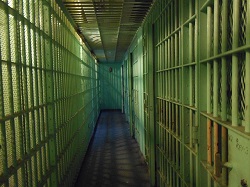 We often hear stories in the news of people being held without bail. If this is a guaranteed Constitutional right, how can judges hold accused persons in detention without bail? Here we offer some information on the factors that determine if bail will be set.
We often hear stories in the news of people being held without bail. If this is a guaranteed Constitutional right, how can judges hold accused persons in detention without bail? Here we offer some information on the factors that determine if bail will be set.
Nature of the Charges and the Defendant
A judge has discretion in deciding the amount of bail, and also if the defendant will be allowed bail on a case by case basis. While the Constitution does guarantee bail for all citizens, there are certain instances in which a judge may restrict bail, especially if the accused poses a safety threat to the community. These factors are often considered when deciding the bail amount, or if bail will be allowed at all:
- Safety threat to community
- Charged with a crime punishable by serious prison sentence or death
- Likelihood that the accused will flee to avoid trial
- Likelihood the accused may destroy evidence if released
- Mental status
- Criminal history
- Repeat felony offender
- Financial status
- History of drug and alcohol use
Posting bail to await trial in the privacy of your home is a privilege. While many factors influence the amount that bail will be set at, and while the judge has the power to decide this amount, respectfully cooperating with officials throughout the legal process will certainly play to your advantage when the judge is deciding bail. If you or a loved one need fast bail, call us today at (706) 353-6467!
